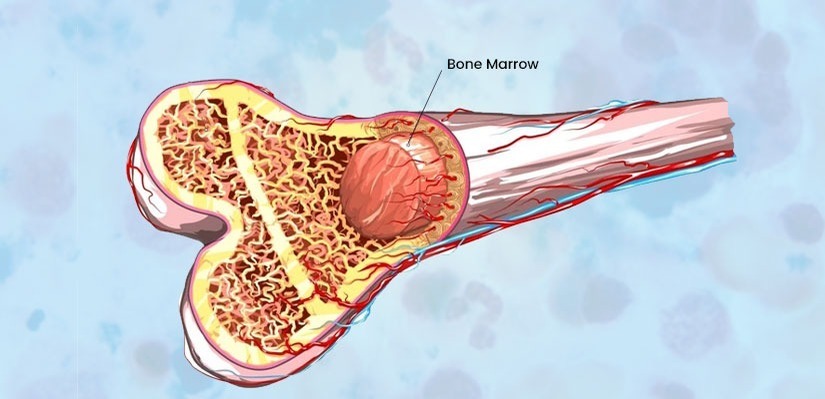Life After Bone Marrow Transplant: Recovery Tips and More

Undergoing a bone marrow transplant is a courageous step toward recovery from serious illnesses like leukemia, lymphoma, or other blood-related disorders. But the real journey begins after the transplant. Life post-transplant involves physical, emotional, and financial adjustments that are essential to long-term healing.
In this blog, I’ll guide you through what to expect after a bone marrow transplant, practical tips for recovery, and answers to some of the most common questions. Whether you're preparing for the next steps or supporting someone who is, this guide can help you navigate life after the procedure.
Adjusting to Life After a Bone Marrow Transplant
Recovery after a bone marrow transplant looks different for every patient. While some begin to regain strength within a few weeks, others may need several months or even longer to feel “normal” again. Fatigue, appetite changes, and increased vulnerability to infections are all part of the recovery journey.
Many patients and families who research the Bone Marrow Transplant Cost In India also want to understand the full picture—what comes after the treatment. That cost includes not just the procedure itself but ongoing care like medications, follow-up visits, nutritional support, and sometimes temporary accommodation near the treatment center.
Essential Tips for a Healthy Recovery
Protect Your Immune System
After a transplant, your immune system is very weak, especially during the first few months. Protect yourself by practicing excellent hygiene, avoiding crowded places, and steering clear of anyone who’s unwell.
Stick to Your Medication Schedule
You’ll be prescribed medications to prevent infections and reduce the risk of complications like graft-versus-host disease. Follow your schedule carefully and keep your care team informed about any side effects.
Eat Well to Heal Well
Nutrition plays a key role in recovery. A dietitian may recommend a neutropenic diet to reduce the risk of food-borne infections. Focus on well-cooked meals, fresh produce, and plenty of fluids to support your healing body.
Listen to Your Body
Pace yourself. Energy levels fluctuate, and it’s okay to rest when needed. Gentle activity and short walks, when approved by your doctor, can gradually help you regain strength.
Take Care of Your Mental Health
Emotional ups and downs are normal. Many patients deal with anxiety, sadness, or mood swings post-transplant. Support groups, counseling, or mindfulness techniques can provide emotional balance during this challenging period.
Long-Term Care and Monitoring
Even after you begin feeling better, ongoing medical follow-up is essential. Your doctors will monitor your blood counts, organ function, and signs of complications. You may also need vaccinations to rebuild immunity.
It’s important to factor these into your long-term planning. Patients considering the Bone Marrow Transplant Cost In India should be aware that the investment doesn’t end at discharge—follow-up care is a vital, ongoing part of recovery.
Choosing the Right Support System
Where you receive treatment and follow-up care can significantly impact your recovery. Many patients benefit from continued care at the Best Bone Marrow Transplant Hospitals in India, which often offer comprehensive post-transplant programs including physical rehab, nutritional support, and emotional counseling.
Trusting Expert Guidance
The path to recovery is smoother when you’re under the care of an experienced team. While selecting your care providers, many people find it helpful to consult curated resources that highlight the Top 10 Hematologists in India, ensuring they’re guided by professionals with deep expertise in post-transplant care.
Frequently Asked Questions (FAQs)
1. How long does full recovery take?
Recovery can take 6 months to a year, or more. It depends on your age, overall health, and the type of transplant you had.
2. Can I return to normal life?
Yes, but gradually. Work, travel, and social activities should resume based on your doctor’s advice.
3. Do I need long-term medication?
Yes. You’ll likely need medications to support your immune system and prevent rejection for several months post-transplant.
4. Will I feel tired all the time?
Fatigue is common. Energy usually improves with time, rest, good nutrition, and gentle exercise.
5. Is emotional support necessary?
Absolutely. Mental health care is just as important as physical healing. Seek support when you need it.
Final Thoughts
Recovery after a bone marrow transplant isn’t just about medical follow-ups—it’s about rebuilding your life, body, and mindset. Take your time, ask questions, and surround yourself with the right care and support.
Your strength brought you through the transplant. Now it will carry you through recovery. Stay committed, stay hopeful, and take each day one step at a time.
Note: IndiBlogHub features both user-submitted and editorial content. We do not verify third-party contributions. Read our Disclaimer and Privacy Policyfor details.



